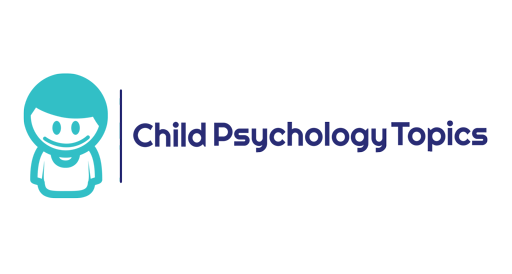In this digital age, children are growing up surrounded by technology, making it crucial to understand the significance of digital literacy in fostering healthy technology usage. Digital literacy equips children with the necessary skills to navigate the online world safely, ensuring they can harness the benefits of technology without succumbing to its potential drawbacks.

Understanding the Basics of Digital Literacy
In the digital age, digital literacy serves as the cornerstone for navigating the vast and complex online landscape. It comprises a set of skills that enable individuals, especially children, to utilize digital technologies effectively and responsibly.
Navigating Online Platforms
Understanding how to navigate various online platforms is a fundamental aspect of digital literacy. This includes proficiency in using search engines, social media, and other digital tools. Teaching children how to conduct efficient and secure online searches while discerning credible sources from misleading ones empowers them to access reliable information and resources.
Critical Evaluation of Information
With the influx of information online, the ability to critically evaluate and analyze digital content becomes crucial. Teaching children to assess the credibility, accuracy, and relevance of online information helps them develop a discerning approach to the content they encounter. This skill not only fosters intellectual growth but also protects them from potential misinformation and harmful content.
Protection of Digital Identity
Safeguarding one’s digital identity is an integral part of digital literacy. Children must understand the importance of maintaining privacy and security when interacting online. Educating them about the significance of using secure passwords, recognizing phishing attempts, and being cautious about sharing personal information fosters a sense of digital responsibility and self-protection.
Understanding Digital Etiquette
Digital literacy also encompasses understanding the norms and etiquette of online communication. Teaching children about appropriate behavior in digital spaces, including respect for others, avoidance of cyberbullying, and the importance of consent when sharing content, cultivates a culture of digital respect and empathy.
By grasping these fundamental aspects of digital literacy, children can develop the skills necessary to navigate the digital world with confidence and responsibility. Integrating these foundational principles into their everyday interactions empowers them to become responsible digital citizens and ensures a safer and more enriching online experience for all.

Nurturing a Culture of Responsible Internet Usage
In an interconnected world where online interactions have become an integral part of daily life, instilling the values of responsible internet usage is paramount. Cultivating a culture of digital responsibility among children involves fostering a deep understanding of ethical online behavior and promoting empathy and critical thinking in their digital interactions.
Cultivating Respectful Online Interactions
Respect forms the bedrock of responsible internet usage. Teaching children to treat others online with the same respect and consideration as they would in face-to-face interactions helps create a harmonious online environment. Encouraging them to practice kindness, empathy, and tolerance in their online communications lays the foundation for healthy and respectful digital relationships.
Building Empathy in Digital Spaces
Empathy is a crucial skill in the digital realm. Empowering children to understand and empathize with the perspectives and experiences of others online promotes a culture of inclusivity and understanding.
Encouraging them to consider the impact of their words and actions on others fosters a sense of responsibility and compassion in their digital interactions.
Promoting Critical Thinking Skills
Responsible internet usage involves the cultivation of critical thinking skills to navigate the abundance of information available online. Teaching children to question the authenticity and credibility of online content, encouraging them to fact-check and verify information, and guiding them to identify biases in digital media enable them to become discerning consumers of online information.
This critical approach helps them develop a healthy skepticism and an ability to form well-informed opinions based on credible sources.
Encouraging Digital Empowerment and Positive Engagement
Empowering children to use the internet as a platform for learning, creativity, and positive engagement contributes to a wholesome digital experience. Encouraging them to participate in constructive online activities such as collaborative projects, creative pursuits, and educational forums fosters a sense of empowerment and purpose.
By highlighting the positive impact they can have in digital spaces, children can develop a sense of agency and responsibility, thereby contributing to a more positive and impactful online community.
By nurturing a culture of responsible internet usage that values respect, empathy, critical thinking, and positive engagement, we can create a digital environment that is conducive to learning, growth, and meaningful connections.
Encouraging these values from an early age lays the groundwork for a generation of conscientious digital citizens who contribute positively to the online world.

Implementing Digital Literacy Programs in Educational Curricula
Recognizing the pivotal role of education in shaping the digital competence of future generations, the integration of comprehensive digital literacy programs within educational curricula is imperative. These programs aim to equip children with the necessary skills and knowledge to navigate the digital landscape safely, ethically, and effectively.
Interactive Workshops and Practical Learning
Integrating interactive workshops and hands-on learning experiences into the educational framework facilitates the practical application of digital literacy skills. These workshops can include simulated online scenarios, interactive tutorials on digital safety, and practical exercises on discerning reliable information.
Such initiatives provide a dynamic learning environment where children can actively engage with digital tools and applications, fostering a deeper understanding of digital literacy concepts.
Emphasis on Online Safety and Cybersecurity
Digital literacy programs within educational curricula should prioritize comprehensive education on online safety and cybersecurity. Educators can introduce topics such as safe internet browsing, recognizing online threats, and safeguarding personal information.
Teaching children to identify and respond to cyberbullying, online predators, and other digital risks ensures they are well-prepared to protect themselves and others in the digital sphere.
Guidance on Building a Positive Digital Footprint
Educational institutions play a crucial role in guiding children on how to cultivate a positive digital presence. Incorporating lessons on responsible social media usage, digital reputation management, and the implications of online content sharing helps students understand the importance of portraying themselves in a positive light online.
By encouraging them to showcase their talents, accomplishments, and contributions thoughtfully, digital literacy programs can empower children to leverage digital platforms for personal and professional growth.
Integration of Ethical Considerations in Digital Practices
Incorporating ethical discussions and considerations into digital literacy programs cultivates a sense of responsibility and ethical decision-making among students. Educators can introduce topics such as copyright infringement, digital plagiarism, and the ethical use of online resources.
By fostering an understanding of digital ethics, children can develop a strong moral compass that guides their behavior and actions in the digital space, promoting integrity and respect for intellectual property rights.
By embedding digital literacy programs into educational curricula that emphasize interactive learning, online safety, digital footprint management, and ethical digital practices, educational institutions can empower students to become proficient, responsible, and ethical digital citizens.
The integration of these programs prepares students to navigate the complexities of the digital world with confidence and integrity, fostering a culture of responsible digital engagement and lifelong learning.

Fostering Open Communication and Setting Healthy Boundaries
In an era where technology is deeply embedded in everyday life, fostering open communication and setting healthy boundaries play a pivotal role in promoting balanced and responsible technology use among children.
Encouraging open dialogue and establishing clear guidelines helps create a supportive environment where children can explore the digital world safely and responsibly.
Establishing Trust and Open Communication Channels
Fostering an environment of trust and open communication between children and parents, guardians, or educators is essential. Creating a safe space where children feel comfortable discussing their online experiences, concerns, and queries facilitates a deeper understanding of their digital behaviors and challenges.
Encouraging open dialogue allows for timely intervention and guidance, promoting a sense of security and support in their digital endeavors.
Setting Clear Guidelines for Screen Time and Device Usage
Establishing clear and consistent guidelines for screen time and device usage helps in maintaining a healthy balance between online and offline activities. Setting specific time limits for digital engagement, encouraging regular breaks from screens, and promoting alternative recreational activities fosters a well-rounded lifestyle.
By emphasizing the importance of moderation and prioritizing real-world interactions, children can develop a holistic approach to technology use that supports their overall well-being.
Encouraging Proactive Discussions on Online Safety
Initiating proactive discussions on online safety and digital citizenship empowers children to recognize and navigate potential online risks independently. Engaging in conversations about cyberbullying, privacy settings, and the implications of sharing personal information online helps them develop a strong awareness of digital security.
Encouraging them to voice any concerns or unsettling encounters fosters a proactive approach to online safety, ensuring they feel equipped to handle challenging digital situations effectively.
Modeling Healthy Technology Use as Adults
Adults play a crucial role in modeling healthy technology use for children. Demonstrating mindful and balanced tech consumption, such as setting personal boundaries for screen time, practicing digital detoxes, and showcasing responsible online behavior, serves as a powerful example for children to emulate.
By exhibiting positive digital habits, adults can inspire children to adopt a conscious and disciplined approach to technology use, fostering a sustainable and healthy relationship with digital devices.
By fostering open communication, setting clear boundaries, and modeling responsible digital behavior, parents, guardians, and educators can create a supportive ecosystem that nurtures responsible technology use in children.
Emphasizing the importance of communication and balance lays the foundation for a positive and constructive digital experience that promotes holistic development and well-being.
Conclusion
In conclusion, the role of digital literacy in promoting healthy technology use in children is indispensable in today’s interconnected world.
By cultivating a comprehensive understanding of digital literacy, nurturing responsible internet usage, integrating digital literacy programs into education, and fostering open communication, we can empower children to navigate the digital landscape with confidence and responsibility.
Let us work together to create a safe and enriching online environment for our future generations. Share your thoughts and experiences in the comments below!







